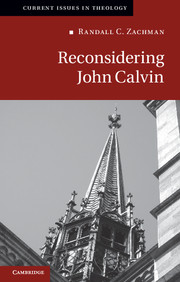Book contents
- Frontmatter
- Contents
- Abbreviations
- Introduction
- 1 The beauty and terror of the universe
- 2 The bond and critique of all social union
- 3 The one elect people of God
- 4 The restoration of Israel by gospel and law
- 5 The comfort and the challenge of love
- 6 Hoping for all others, fearing for myself
- Conclusion
- Index
- References
3 - The one elect people of God
John Calvin and Karl Barth on the Jews
Published online by Cambridge University Press: 05 June 2012
- Frontmatter
- Contents
- Abbreviations
- Introduction
- 1 The beauty and terror of the universe
- 2 The bond and critique of all social union
- 3 The one elect people of God
- 4 The restoration of Israel by gospel and law
- 5 The comfort and the challenge of love
- 6 Hoping for all others, fearing for myself
- Conclusion
- Index
- References
Summary
Our duty to love all people individually, yet no one distinctively, leads to the question of whether God can love one community distinctly, over and above any other community. Can we learn from Calvin how to make sense of the irreducible and irreplaceable love of God for the people of Israel, for the Jews, even in light of the love of God for humanity in Jesus Christ? I owe the impetus for the reflections in the next two chapters to my late colleague, Rabbi Michael Signer. The Theology Department at Notre Dame is a remarkable place, in that they would hire someone like me to teach the major critics of the Roman Church during the Reformation and post-Reformation period, and would also hire deeply committed Jewish theologians to teach theology in the theology department. Rabbi Signer was trained at the Pontifical Institute in Toronto, and was an expert in medieval theology, especially Andrew of St. Victor and the Victorine School. But he was also a very provocative thinker, and I remember talking to him in the hallway once about Jewish–Christian dialogue, and I told him that one reason I really like Calvin is that he provides us with a better understanding of the Jews and the role of the Jews in the Christian–Jewish discussion. And Michael said, “Well yes, he does with regard to the Jews before Jesus, but what did Calvin think of the Synagogue down the street?” This question froze me in my tracks, because I did not know the answer, and it led me to an investigation on this theme, the fruits of which I will be sharing for the next two chapters. So I offer these reflections as a homage to him. I do not know if he would like what I am saying or not, but he actually sent me on this trajectory. So the next two chapters are an attempt to explore what Calvin thinks about Israel, and the problems that I uncover in his thought, followed by the solution to the problem proposed by Karl Barth. In the next chapter I will be going back to Calvin to see if I can develop another trajectory in his thought that allows us to view Israel and the Jews more positively, from the perspective of Christian Scripture. This is one of the most intractable theological problems in Christianity, and the most insoluble, but also the most important.
- Type
- Chapter
- Information
- Reconsidering John Calvin , pp. 62 - 90Publisher: Cambridge University PressPrint publication year: 2011



